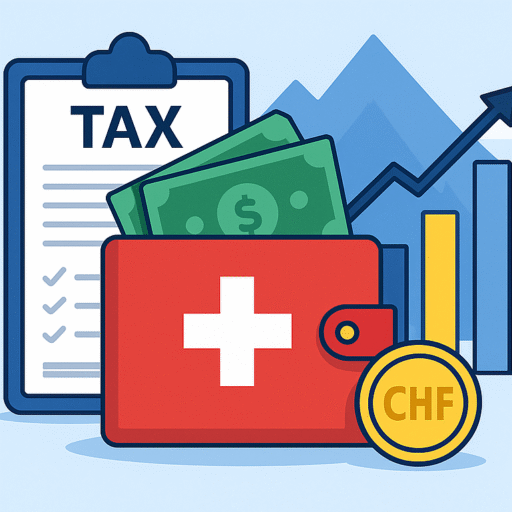Switzerland continues to be one of the world’s most attractive destinations for international professionals seeking career opportunities. With its stunning Alpine landscapes, exceptional quality of life, and robust economy, the country has earned its reputation as a global talent hub. For expats considering a move to Switzerland in 2025, this comprehensive guide will walk you through everything you need to know about finding and securing employment in this prosperous nation.
- 🌍 Why Switzerland Attracts Global Talent
- ⚠️ Challenges for Foreigners Looking for Jobs in Switzerland
- 🔎 Where to Find Jobs in Switzerland
- 🏭 Top Industries Hiring in 2025
- 🏙️ Best Cities for Jobs in Switzerland
- 🗣️ Language & Integration Tips
- 📝 Work Permits & Visa Requirements
- 💰 What Salaries Can You Expect?
- ❓ Frequently Asked Questions (FAQs)
- ✅ Final Thoughts
🌍 Why Switzerland Attracts Global Talent
Switzerland has consistently ranked as the world’s most talent-competitive country, maintaining this position for seven consecutive years according to the Global Talent Competitiveness Index.
🏞️ Beyond its natural beauty, Switzerland offers:
- Political stability and legal transparency
- World-class universities like ETH Zurich and EPFL
- A robust, innovation-driven economy
- Environmental sustainability and clean living
For international companies, Switzerland is a magnet thanks to its business-friendly climate and intellectual property protections. The presence of numerous multinational HQs, R&D centers, and startup ecosystems makes it a top choice for global professionals.
⚠️ Challenges for Foreigners Looking for Jobs in Switzerland
While the opportunities are abundant, expats face some real barriers:
🔤 Language Barriers
- 4 official languages: German, French, Italian, Romansh
- Work permit language requirements (A1–B1)
- Many jobs require conversational or fluent local language
🛂 Strict Work Permits (esp. for non-EU/EFTA)
- 2025 quotas: 8,500 for non-EU/EFTA + 3,500 for British nationals
- Employers must prove no Swiss/EU candidate is available
- Process requires job offer + employer sponsorship
📈 High Competition
- Jobs in finance, pharma, IT = fierce competition
- Swiss business culture favors referrals and local networks
👥 Tip: Start networking early. Personal connections matter!
🔎 Where to Find Jobs in Switzerland
💻 Job Portals
- Jobs.ch: Biggest Swiss job platform (113K+ listings)
- JobScout24.ch: Great filters, company reviews
- XING: Strong for German-speaking markets
- Indeed & LinkedIn: Good for English-speaking and international roles
- Niche portals: ictjobs.ch (IT), financejobs.ch, med-jobs.ch
👉 Check out our full list of portals in Best Job Portals in Switzerland for English Speakers (2025)
🕵️ Recruitment Agencies
- Can help with:
- Salary benchmarks
- CV tips & interview prep
- Permit and relocation guidance
🔗 LinkedIn & Company Sites
- Optimize your profile for recruiters
- Follow big Swiss employers: Nestlé, Roche, UBS, Novartis
- Apply directly via their websites to show genuine interest
🏭 Top Industries Hiring in 2025
| Industry | Typical Salary Range (CHF) | Notes |
|---|---|---|
| Engineering | 82,000 – 200,000 | High demand across disciplines |
| IT & Software | 94,000 – 190,000 | SAP consultants highly sought |
| Healthcare | Varies | Strong demand post-COVID |
| Finance | Competitive | Especially in Zurich & Geneva |
| Skilled Trades | Premium wages | Electricians, plumbers, welders |
🏙️ Best Cities for Jobs in Switzerland
🏦 Zurich
- Finance, tech, startups, consulting
🌐 Geneva
- International orgs, NGOs, diplomacy
💊 Basel
- Pharma & biotech capital (Roche, Novartis)
📚 Lausanne
- Research, education, sports admin (IOC)
🏛️ Bern
- Government & public sector roles
🗣️ Language & Integration Tips
- German: dominant in Zurich, Basel, Bern
- French: Geneva, Lausanne
- Italian: Ticino
🎓 Consider:
- Intensive language schools
- Tandem language exchanges
- Integration programs offered by local cantons
💡 Bonus: Learn cultural etiquette! Swiss workplaces value punctuality, privacy, and structure.
📝 Work Permits & Visa Requirements
🇪🇺 EU/EFTA Nationals
- Can work freely, must register if staying >90 days
- L permit = short term; B permit = long term
🌎 Non-EU Nationals
- Must be “highly qualified”
- Job offer + employer application is required
- Annual quotas apply (limited slots)
📑 Needed docs: contract, diplomas, references, language proof
💰 What Salaries Can You Expect?
- Avg. net salary: CHF 5,430/month
- Part-time hourly: CHF ~39/hour
- Geneva’s min. wage: CHF 23/hour
💼 Examples:
- Legal/Security: up to CHF 125K
- Hospitality: ~CHF 116K
- Media/Translation: ~CHF 114K
🏙️ Salaries are higher in cities like Zurich, Geneva, Basel to match cost of living.
Perks often include:
- Health insurance
- Pension & benefits
- Generous vacation policies
❓ Frequently Asked Questions (FAQs)
Can I work in Switzerland without speaking the local language?
Yes, but mostly in international orgs or IT/finance roles. Language helps a lot.
How long does it take to get a permit?
EU: a few weeks. Non-EU: several months due to quotas.
Where is it easiest to get hired?
Zurich, Geneva, Basel = most offers, but also highest competition.
Is there a minimum wage?
No national minimum, but some cantons like Geneva enforce it (CHF 23/hour).
Are my foreign qualifications valid?
Depends on profession. Regulated fields (law, medicine) often require recognition.
✅ Final Thoughts
Switzerland in 2025 offers unmatched opportunities for ambitious expats — but you need to be well-prepared.
🔑 Key to success:
- Learn the language (at least basic!)
- Understand permits & quotas
- Target the right industries and cities
- Use the best tools & networks
🎯 With the right mindset, persistence, and planning — your Swiss job dream is absolutely within reach. Bonne chance! 🇨🇭

